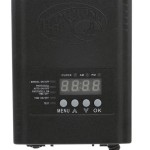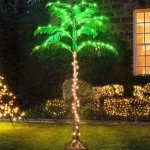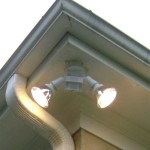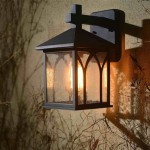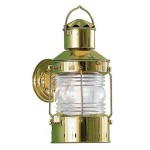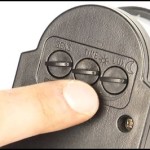Essential Aspects of Installing Outdoor Motion Sensor Lights
Installing outdoor motion sensor lights is crucial for enhancing home security and convenience. These lights illuminate dark areas, deter intruders, and make it easier to navigate your property at night. By understanding the essential aspects of installation, you can ensure optimal functionality and maximize the benefits of these lighting solutions.
This article delves into the key aspects of installing outdoor motion sensor lights, providing detailed guidance and tips to help you complete the task successfully.
1. Choosing the Right Location
The location of your motion sensor light is critical for its effectiveness. Consider areas with high foot traffic or potential safety hazards, such as walkways, driveways, or entry points. Ensure the sensor has a clear view of the intended coverage area and is not obstructed by trees or other objects.
2. Selecting the Appropriate Sensor
Motion sensors come in different types, including passive infrared (PIR), ultrasonic, and microwave. PIR sensors detect heat signatures, while ultrasonic and microwave sensors use sound waves or radio frequencies to detect movement. Choose a sensor that suits the specific needs and environmental conditions of your property.
3. Wiring and Electrical Considerations
Outdoor motion sensor lights require proper wiring and electrical connections. Ensure that the electrical wires used are rated for outdoor use and that all connections are weatherproof. If you are not comfortable with electrical work, it is recommended to consult a qualified electrician.
4. Fixture and Mounting
Select a fixture that complements the style of your home and provides adequate illumination for the intended area. The fixture should be securely mounted to a stable surface, such as a wall or post, using appropriate hardware. Ensure that the mounting height provides the desired coverage and detection range.
5. Adjustment and Sensitivity Settings
After installation, adjust the motion sensor's sensitivity settings to determine the distance and angle at which it responds to movement. Some sensors also offer adjustable time settings to control the duration of light activation after motion is detected.
6. Regular Maintenance and Troubleshooting
To ensure optimal performance, regularly check the motion sensor light for any signs of damage or malfunction. Clean the sensor lens to prevent dust or dirt accumulation, and periodically replace batteries or bulbs as needed. If any issues arise, consult the manufacturer's instructions or seek professional assistance.
By following these essential aspects, you can effectively install outdoor motion sensor lights that provide security, convenience, and peace of mind for your home.

How To Install Security Lights Diy Family Handyman

How To Install An Outdoor Motion Sensor Light With Pictures

Installing A Remote Motion Detector For Lighting Diy

How To Install An Outdoor Motion Sensor Light With Pictures

How To Install An Exterior Motion Sensor Light Security Lights Diy Home

How To Make A Motion Sensor Light Stay On Rayzeek

The Best Outdoor Motion Sensor Lights In 2024 Popular Science

How To Install Outdoor Motion Activated Lights Tomcomknowshow

How To Wire Motion Sensor Occupancy Sensors

Benefits Of Having Motion Sensor Lights Around Your Home
